
Jonathan Swift was an Anglo-Irish satirist, author, essayist, political pamphleteer, poet, and Anglican cleric who became Dean of St Patrick's Cathedral, Dublin, hence his common sobriquet, "Dean Swift".
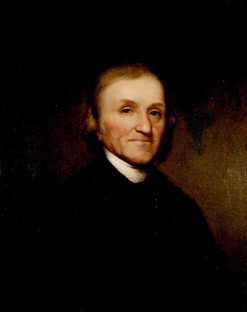
Joseph Priestley was an English chemist, natural philosopher, separatist theologian, grammarian, multi-subject educator, and liberal political theorist. He published over 150 works, and conducted experiments in several areas of science.

Gulliver's Travels, or Travels into Several Remote Nations of the World. In Four Parts. By Lemuel Gulliver, First a Surgeon, and then a Captain of Several Ships is a 1726 prose satire by the Anglo-Irish writer and clergyman Jonathan Swift, satirising both human nature and the "travellers' tales" literary subgenre. It is Swift's best-known full-length work and a classic of English literature. Swift claimed that he wrote Gulliver's Travels "to vex the world rather than divert it".
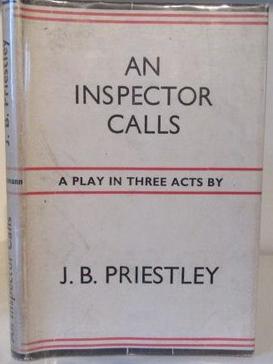
An Inspector Calls is a modern morality play written by English dramatist J. B. Priestley, first performed in the Soviet Union in 1945 and at the New Theatre in London the following year. It is one of Priestley's best-known works for the stage and is considered to be one of the classics of mid-20th century English theatre. The play's success and reputation were boosted by a successful revival by English director Stephen Daldry for the National Theatre in 1992 and a tour of the UK in 2011–2012.

John Boynton Priestley was an English novelist, playwright, screenwriter, broadcaster and social commentator.

Robert Peter Fleming was a British adventurer, journalist, soldier and travel writer. He was the elder brother of Ian Fleming, creator of James Bond, and attained the British military rank of Lieutenant Colonel.
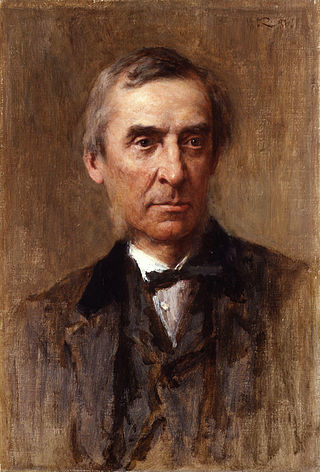
James Anthony Froude was an English historian, novelist, biographer, and editor of Fraser's Magazine. From his upbringing amidst the Anglo-Catholic Oxford Movement, Froude intended to become a clergyman, but doubts about the doctrines of the Anglican church, published in his scandalous 1849 novel The Nemesis of Faith, drove him to abandon his religious career. Froude turned to writing history, becoming one of the best-known historians of his time for his History of England from the Fall of Wolsey to the Defeat of the Spanish Armada.

Joseph Hilaire Pierre René Belloc was a Franco-English writer and historian of the early 20th century. Belloc was also an orator, poet, sailor, satirist, writer of letters, soldier, and political activist. His Catholic faith had a strong effect on his works.
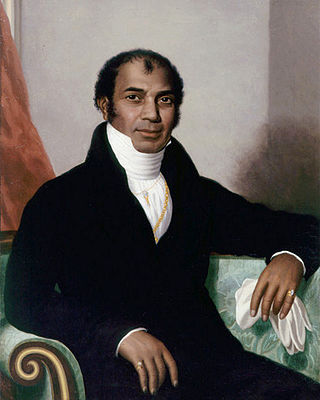
Dean Mahomed (1759–1851) was a British Indian traveller, soldier, surgeon, entrepreneur, and one of the most notable early non-European immigrants to the Western World. Due to non-standard transliteration, his name is spelled in various ways. His high social status meant that he later adopted the honorific "Sake" meaning "venerable one". Mahomed introduced Indian cuisine and shampoo baths to Europe, where he offered therapeutic massage. He was also the first Indian to publish a book in English.

Kenneth Tompkins Bainbridge was an American physicist at Harvard University who worked on cyclotron research. His accurate measurements of mass differences between nuclear isotopes allowed him to confirm Albert Einstein's mass–energy equivalence concept. He was the Director of the Manhattan Project's Trinity nuclear test, which took place July 16, 1945. Bainbridge described the Trinity explosion as a "foul and awesome display". He remarked to J. Robert Oppenheimer immediately after the test, "Now we are all sons of bitches." This marked the beginning of his dedication to ending the testing of nuclear weapons and to efforts to maintain civilian control of future developments in that field.
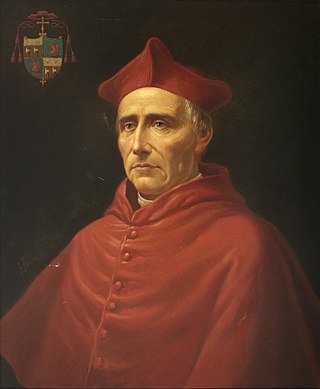
Christopher Bainbridge was an English cardinal. Of Westmorland origins, he was a nephew of Bishop Thomas Langton of Winchester, represented the continuation of Langton's influence and teaching and succeeded him in many of his appointments such as provost of The Queen's College in the University of Oxford. Towards the end of the reign of King Henry VII, he was successively Master of the Rolls, a Privy Counsellor, Dean of Windsor and Bishop of Durham. Becoming Archbishop of York and therefore Primate of England in 1508, he was sent as procurator of King Henry VIII to the papal court of Pope Julius II, where he was active in the diplomatic affairs leading to Henry's war against France and took part in the election of Julius's successor, Pope Leo X. He was murdered by poisoning in Italy in 1514 and was succeeded as Archbishop of York by Thomas Wolsey.
Charlie Connelly is an author of popular non-fiction books. In addition to being a writer, Connelly also appears as a presenter on radio and television shows.

Stamboul Train is the second significant novel by Graham Greene. Set on a train journey from Ostend to Istanbul, the book was renamed Orient Express when it was published in the United States. The novel appeared in 1932 and was Greene's first true success. It was taken on by the Book Society and in 1934 adapted as the film Orient Express.
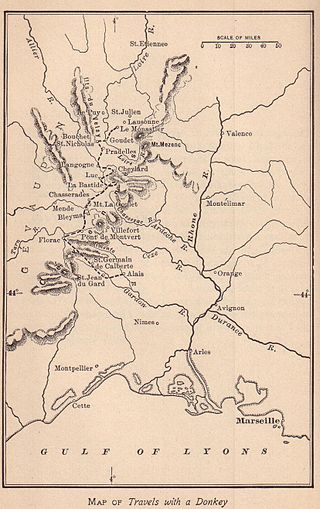
Travels with a Donkey in the Cévennes (1879) is one of Robert Louis Stevenson's earliest published works and is considered a pioneering classic of outdoor literature.
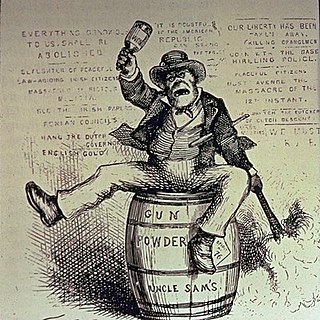
Anti-Irish sentiment includes oppression, persecution, discrimination, or hatred of Irish people as an ethnic group or a nation. It can be directed against the island of Ireland in general, or directed against Irish immigrants and their descendants in the Irish diaspora. This sentiment can also be called Hibernophobia.

The Gap in the Curtain is a 1932 borderline science fiction novel by the Scottish author John Buchan. Part of the action is autobiographical, featuring the agonies of a contemporary up-and-coming politician. It explores the theory of serial time put forward by J W Dunne: Buchan had been reading An Experiment with Time.

The Bradford Playhouse is a 266-seat proscenium arch theatre with circle and stall seating based in Little Germany, in the city of Bradford, West Yorkshire, England. Formerly known as The Priestley, the theatre also has a studio space that has flexible lighting, sound and seating arrangements.
Dean King is an American author of narrative non-fiction on adventure, historical and maritime subjects. His books include Skeletons on the Zahara (2004) and Unbound (2010), both published by Little, Brown. He is the author of companion books to Patrick O'Brian's Aubrey-Maturin series of novels and is the first biographer of O'Brian. In his biography, Patrick O'Brian: A Life (2000), which was excerpted in four full pages in The Daily Telegraph in London, King revealed that O'Brian was not really of Irish origin, as O'Brian claimed, and that he had changed his name by deed poll in London in 1945. King has also published articles in The New York Times, National Geographic Adventure, New York Magazine, Outside and other magazines and newspapers.

Joseph Priestley was a British natural philosopher, political theorist, clergyman, theologian, and educator. He was one of the most influential Dissenters of the late 18th-century.
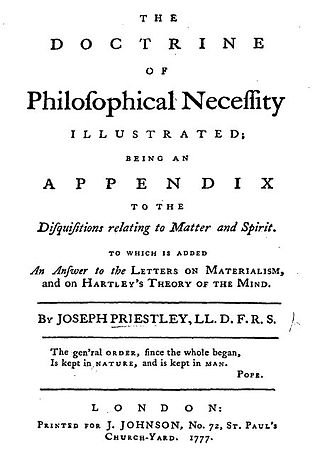
The Doctrine of Philosophical Necessity (1777) is one of the major metaphysical works of 18th-century British polymath Joseph Priestley.


















